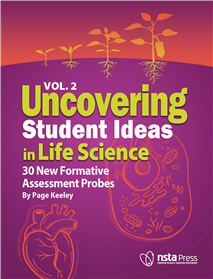All Assessment resources
Journal Article
Impact of the Timing of Content Introduction on Student Exam Performance in General Chemistry
Students come into the classroom with a variety of background knowledge. Therefore, it is imperative that educators are able to help all students, regardless of their familiarity with the content. Since it can be challenging for some large enrollment...
By Anthony Howcroft, Daniel King
Journal Article
Increased Student Employment is Associated with Inferior Biology Exam and Course Performance
Rising tuition rates across colleges and universities contribute to the mounting financial strain on students. In response to rising costs, literature details that students would seek to bolster their financial security by working additional hours pe...
By Finley Sims, Megan O'Connor, Jana Weber, Keenan Hartert
Journal Article
Effect of voluntary clicker participation on General Chemistry performance
Mixed results have been reported on the correlation between clickers and performance. This study investigates the usage of clickers in a voluntary context. Scores on an internal chemistry placement exam were used to estimate cognitive ability, as a f...
By Rayza Rosa Tavares Rodrigues, Daniel King
NSTA Press Book
Uncovering Student Ideas in Life Science, Volume 2: 30 New Formative Assessment Probes
Click here to view video of Uncovering Student Ideas in Life Science, Volume 2...
By Page Keeley
Journal Article
Formative Assessment From a Translanguaging Perspective in the NGSS Classroom
The Next Generation Science Standards hold promise for cultivating the diverse assets that students bring to science learning. One key asset in linguistically diverse science classrooms is translanguaging, or the use of one’s full communicative rep...
By Abigail Schwenger, Scott Grapin, Nicole Altamirano, Alison Haas, Okhee Lee
Journal Article
I CAN: Strategies for Rethinking How We Share Objectives
Teachers are often required to display or explicitly state learning objectives prior to beginning a lesson. In particular, many elementary classrooms are required to post or state “I CAN…” statements related to their standards. Unfortunately, t...
By Julianne Wenner, Brooke Whitworth
Journal Article
Nationally, students fail anatomy and physiology courses at some of the highest rates compared to other courses at the undergraduate level. Formative evaluation guides future learning by assessing the quality of student achievement while the student ...
By Amy Benton and Drew Hataway
Journal Article
Authentic assessments for an in-person or online science course for pre-service teachers
Creating authentic science assessments that engage students in conceptual understanding and provide evidence of their learning is challenging. Student-centered instruction and assessments provide an opportunity to build student agency and foster posi...
By Stefany M. Sit and Laura Zeller
Journal Article
An introductory physics course may be run like a video game, where students have an almost unlimited number of attempts to demonstrate their competencies through a sequence of zero-penalty assessments until the end of a semester. Each checkpoint is ...
By Minjoon Kouh
Journal Article
Program Evaluation in Formal and Informal STEM Learning Environments
Evaluation Insights is a new column about program evaluation that will help readers build their capacity as program evaluators....
Journal Article
This article presents a framework to design lesson plans for elementary science teachers using insights from a summer-long research experience for teachers (RET) workshop (National Science Foundation, 2021) to learn strategies to weave ISK (and WMS) ...
By Linda Rost, Rebecca Hite, Gina Childers
Journal Article
Using Scenarios to Assess Student Learning
The Next Generation Science Standards (NGSS) define science literacy as having the knowledge and understanding of scientific concepts and processes and the ability to question natural world phenomena (National Research Council, 2012). When students w...
By Maha Kareem, Amy Lannin, William Romine, Nancy Singer, Marsha Tyson, Katie Kline, Michelle Kendrick, Sam Otten, Sarah Apple
Journal Article
We are now a decade past the release of the NGSS —an event that has shaped the way we teach science. The NGSS, with its three-dimensional approach encompassing disciplinary core ideas (DCIs), science and engineering practices (SEPs), and cross-cutt...
By Patricia McGinnis
Journal Article
This article describes a cycle of teacher collaborative inquiry called the Student Experience Improvement Cycle (SEIC). The SEIC is a novel form of assessment: it focuses on supporting teachers in using evidence of the quality of student experience f...
By William Penuel, Ali Raza, Yamileth Salinas Del Val, Rosa Salinas-Estevez, Emily Williamson, Jennifer Smith, Quincy Gill
Journal Article
Standards-based grading (SBG) is an alternative approach to grading that uses standards, such as the NGSS, to communicate what students have learned. While SBG has increased in popularity in the last decade, questions still remain in regard to what c...
By Jesse Wilcox, Matt Townsley



